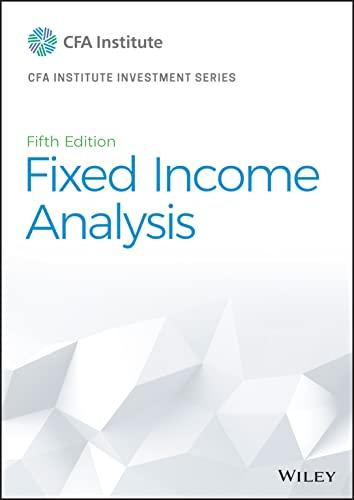Modern Mortgage, a savings bank, decides to establish an ALCO (assetliability committee) to improve risk management and
Question:
Modern Mortgage, a savings bank, decides to establish an ALCO (asset−liability committee) to improve risk management and coordination of its loan and deposit ratesetting processes. Modern’s primary assets are long-term, fixed-rate, monthly payment, fully amortizing residential mortgage loans. The mortgage loans are prime quality and have loan-to-value ratios that average 80%. The loans are pre-payable at par value by the homeowners at no fee. Modern also holds a portfolio of non-callable, fixed-income government bonds (considered free of default risk) of varying maturities to manage its liquidity needs. The primary liabilities are demand and time deposits that are fully guaranteed by a government deposit insurance fund. The demand deposits are redeemable by check or debit card. The time deposits have fixed rates and maturities ranging from 90 days to three years and are redeemable before maturity at a small fee. The banking- sector regulator in the country in which Modern operates has introduced a new capital requirement for savings banks. In accordance with the requirement, contingent convertible long-term bonds are issued by the savings bank and sold to institutional investors. The key feature is that if defaults on the mortgage loans reach a certain level or the savings bank’s capital ratio drops below a certain level, as determined by the regulator, the bonds convert to equity at a specified price per share.
As a first step, the ALCO needs to identify the types of assets and liabilities that comprise its balance sheet using the classification scheme in Exhibit 1. Type I has certain amounts and dates for its cash flows; Type II has known amounts but uncertain dates; Type III has specified dates but unknown amounts; and Type IV has uncertain amounts and dates.
Government bonds
Step by Step Answer:






